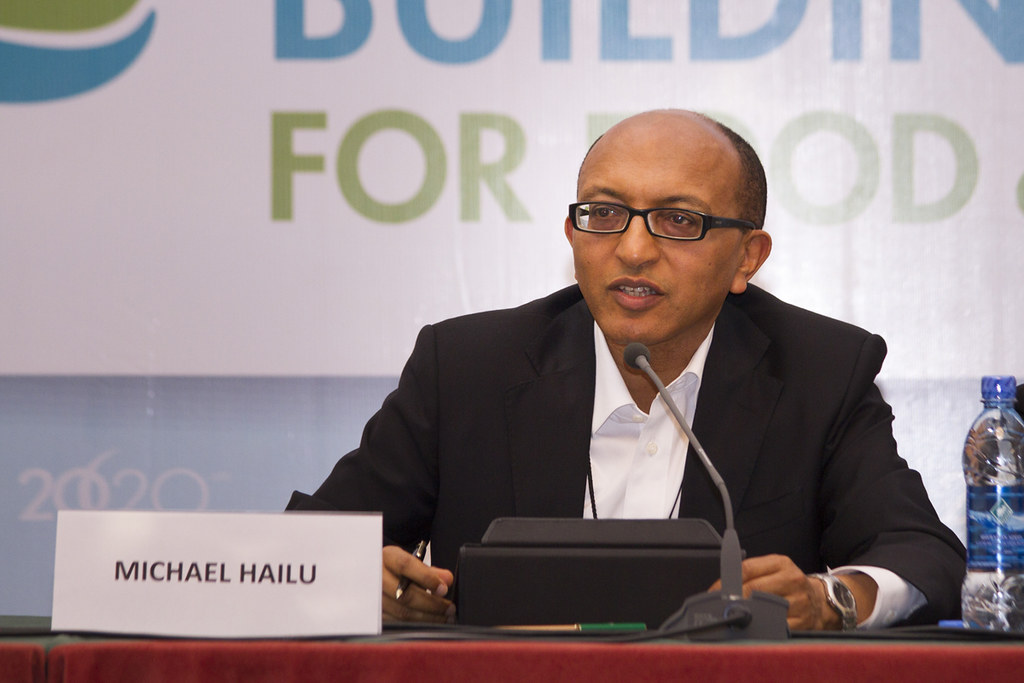29 November - 1 December 2016. Ouagadougou, Burkina Faso. "Grain agribusiness in West Africa: What market instruments and public policies are needed to enhance the fluidity of the regional grain market in the ECOWAS region?”
That was the subject of the regional conference organised by CTA, the West Africa Farmers' organisation Network (ROPPA), the West African Grain Network (WAGN) and the African Rural and Agricultural Credit Association (AFRACA).
The organising committee was composed of experts from organisations such as ROPPA, WAGN, Ministry of Agriculture of Burkina Faso and CTA, as well as other partnering regional organisations such as AGRA and the USAID Trade Hub.
the
That was the subject of the regional conference organised by CTA, the West Africa Farmers' organisation Network (ROPPA), the West African Grain Network (WAGN) and the African Rural and Agricultural Credit Association (AFRACA).
The organising committee was composed of experts from organisations such as ROPPA, WAGN, Ministry of Agriculture of Burkina Faso and CTA, as well as other partnering regional organisations such as AGRA and the USAID Trade Hub.
the
- Around 200 participants shared their experiences and best practices, and proposed ways of promoting cross-border grain value chains in West Africa.
- Some twenty participants from outside West Africa have been invited: from neighbouring countries trading in grain with West Africa, and representatives of other regional communities such as the Eastern African Grain Council (EAGC), a network of East African grain organisations. Inter-regional exchanges will thus be facilitated, to share experiences and best practices.

« Les possibilités d'améliorer la sécurité alimentaire et les revenus des agriculteurs grâce aux céréales sont énormes mais elles ne sont pas mises à profit. Nous importons quelque 20% de la consommation régionale de céréales », Djibo Bagna, Président du ROPPA.
By bringing together different types of stakeholders for a joint brainstorming, with the support of numerous partners, CTA hoped to generate firm recommendations which will help to modernise the regional grain market. What is at stake over time is the food security of more than 300 million inhabitants.
Extracts of the programme:
Extracts of the programme:
- The challenges of developing crossborder grain value chains: - grain standards in regional trade; the post-harvest losses issue (aflatoxin, etc.)
- The issue of aflatoxin and theimpact on grain trade in the WestAfrica region (Communicator PACA and
USAID Trade Hub)
"In Africa, aflatoxin is one of the most pervasive food safety challenges, because of its impact on food and nutrition security, trade and public health. Aflatoxins affect access to markets and rural incomes, so it is extremely important to examine how this can impact the West African grain trade." Winta Sintayehu, Programme Officer at the Partnership for Aflatoxin Control in Africa (PACA)"Grain production in West Africa faces some serious challenges, among them mycotoxin attacks – particularly aflatoxin. Aflatoxin is a silent killer that must be eradicated. Given the complex nature of the aflatoxin problem, the most effective way of combatting the challenge will be through an integrated approach. These include encouraging good agricultural practices, drawing up more stringent regulations and standards and introducing good policies to enforce them". CTA Director Michael Hailu - The grain production systems and processing: inputs, mechanisation, modernisation, storage, post-harvest losses (Group ROPPA (facilitated by AGRA + entrepreneur)



No comments:
Post a Comment